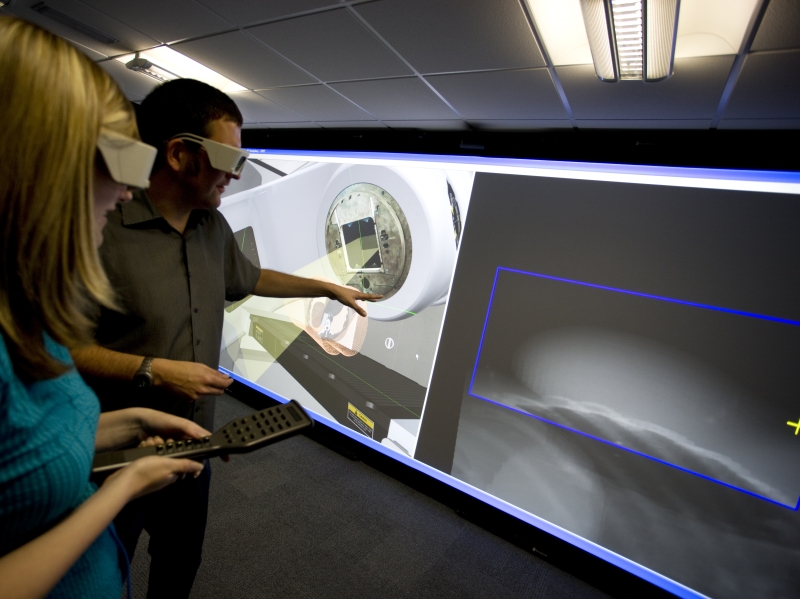
Dr. Craig Anslow
Lecturer in Software Engineering
School of Engineering and Computer Science
Victoria University of Wellington

Dr. Brian Robinson
Senior Lecturer
Graduate School of Nursing, Midwifery, and Health
Victoria University of Wellington


The Department of Radiation Therapy at the University of Otago Wellington, has a virtual reality radiotherapy simulator (VERT) for the education of radiotherapy students to understand the spatial processes required for radiotherapy. The VERT provides a limited library of case examples and it is valuable for the educators to be able to add anonymised cases to this library. Currently the clinical image transfer is cumbersome having been developed through complex fixes. Consequently very few educators have the skills to do this. Also the VERT is non immersive. The aim of this project to develop a usable VR prototype (in Unity) to explore visualizing CT, PET or MRI scan data effectively.
Radiation therapy provides the delivery of beams of radiation to treat patients who have tumours. The key requirement is to plan the delivery of the radiation beams to be focused on the tumours, avoiding other tissues, as the radiotherapy machine rotates around the patient. For those learning this skill, spatial concepts can be difficult to understand and, as a result, this has led to the development of radiotherapy simulators. These allow students to observe in 3D the simulated beam of radiation and its interaction with the internal images of body. The Department of Radiotherapy, University of Otago Wellington, has a virtual reality radiotherapy simulator (VERT) for the education of radiotherapy students to understand the spatial processes required for radiotherapy. The VERT is provided by the UK based vendor with a library of case examples.
The VERT is likely to be the most expensive clinical simulation device available. The cost is in the region of $1Million NZD for a system that consists of a fixed number of computers, a projector, proximity sensor system and 3D glasses. It could be considered unintuitive to use and, like many clinical simulators, can provide the educational capability to facilitate educators’ learning plans. International experience is that many of these simulators are unused or not used to their full potential and this stems, in part, from limitations on the cases available. To enhance the educational value of using this education in the New Zealand context, it is valuable for the educators to be able to add anonymised cases to this library. Currently the clinical image transfer is cumbersome and time consuming, having been developed through complex workarounds. Consequently, only one of professional practice fellows who developed this and teaches using the VERT has the necessary skills to do this. The aim of this project to develop a specifically engineered VR prototype (in Unity) that can explore CT, PET or MRI scan image data effectively.
 Dr. Craig Anslow Lecturer in Software Engineering School of Engineering and Computer Science Victoria University of Wellington |
 Dr. Brian Robinson Senior Lecturer Graduate School of Nursing, Midwifery, and Health Victoria University of Wellington |
